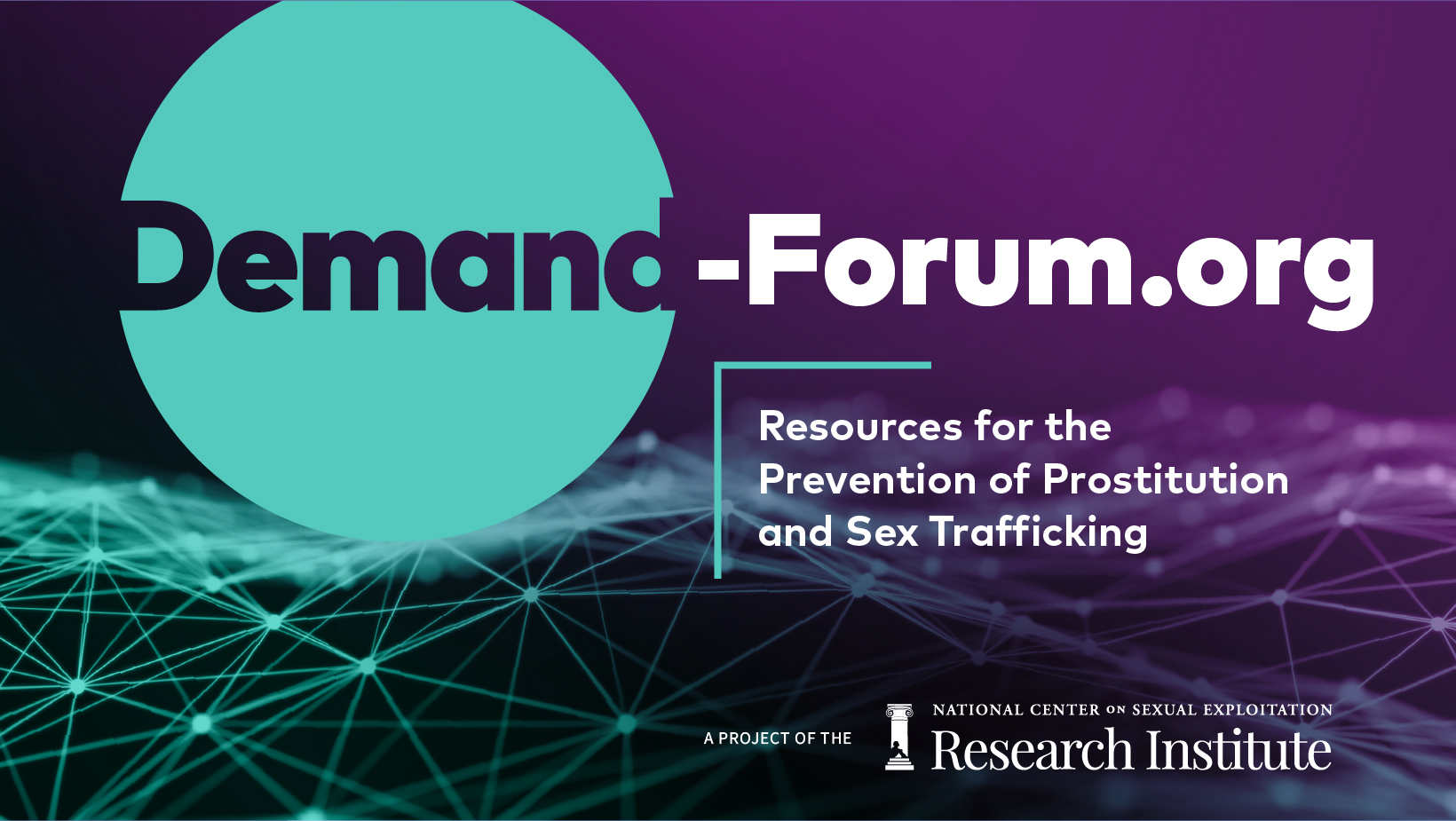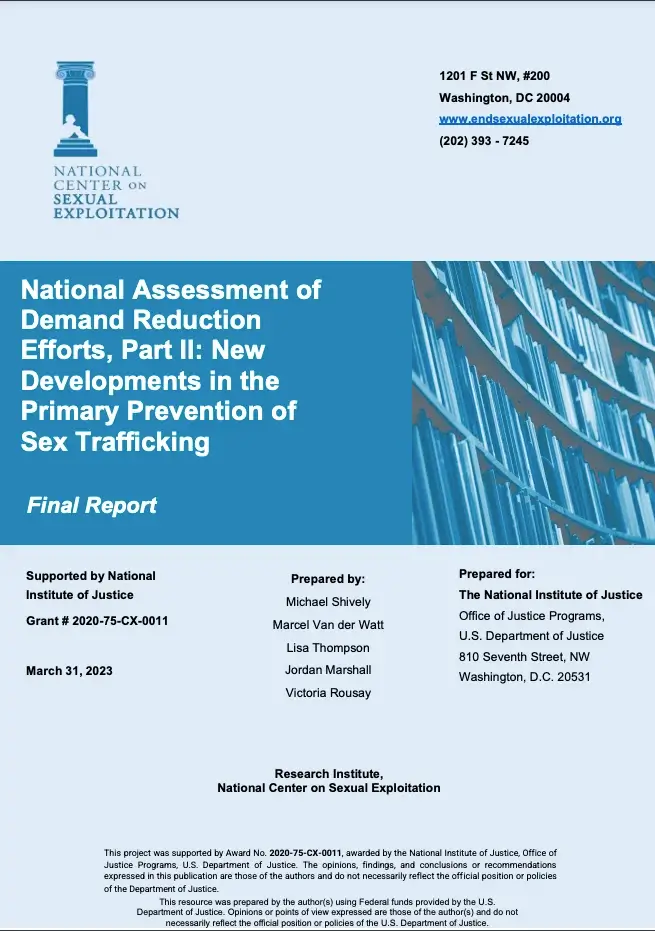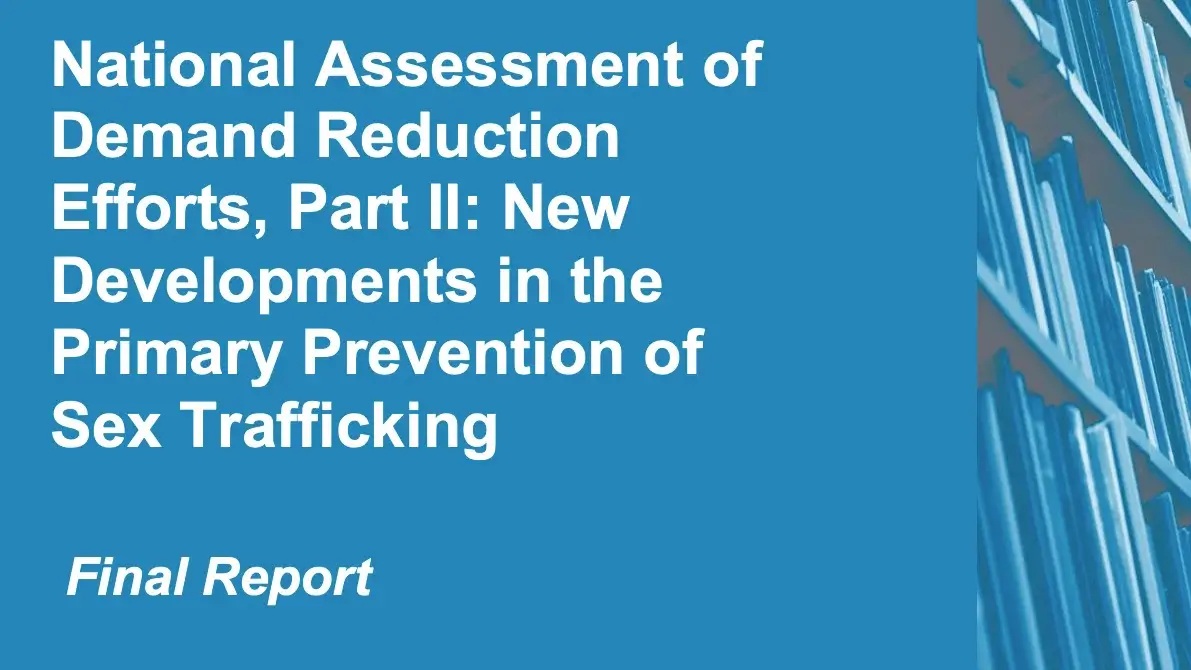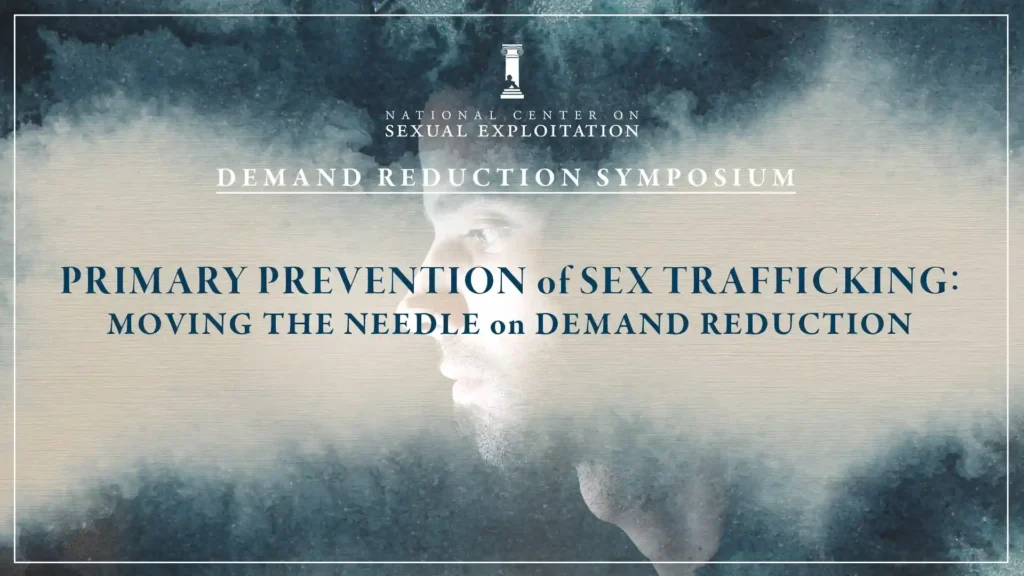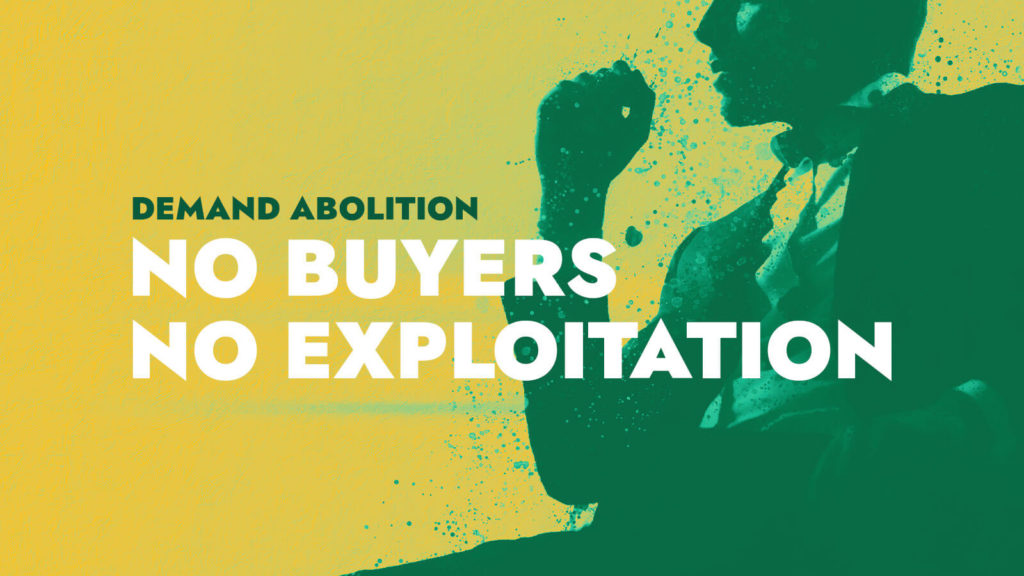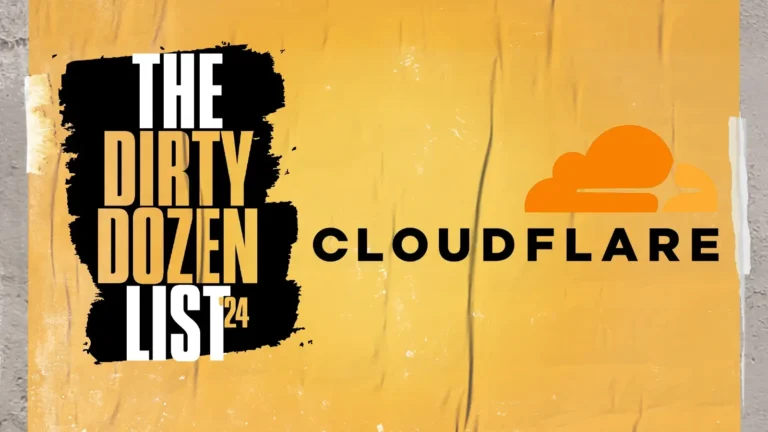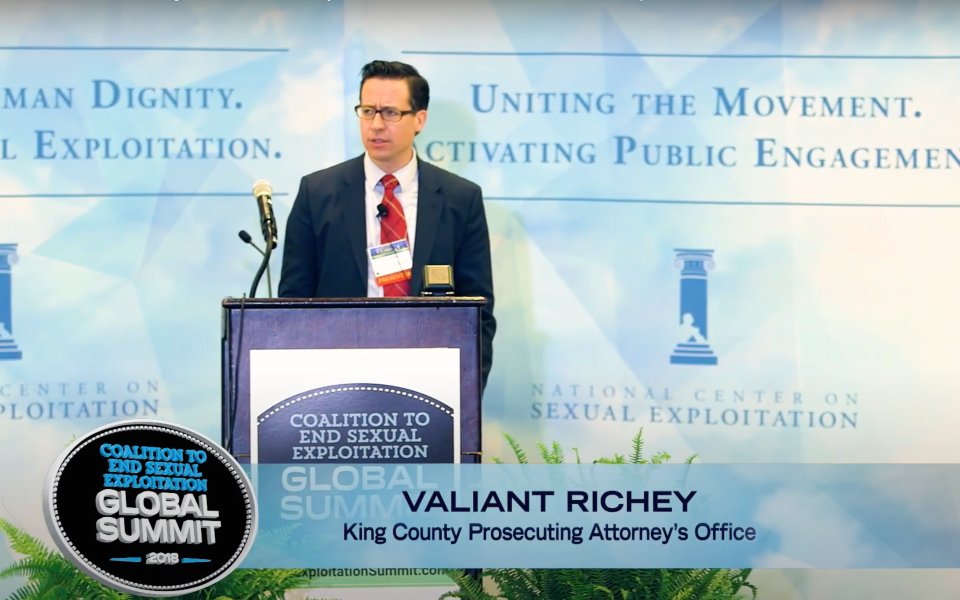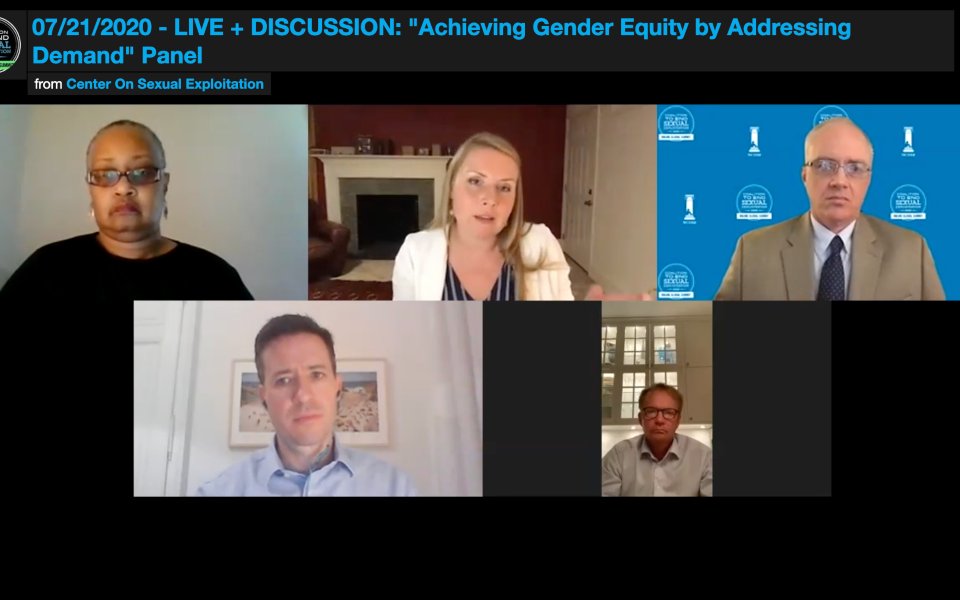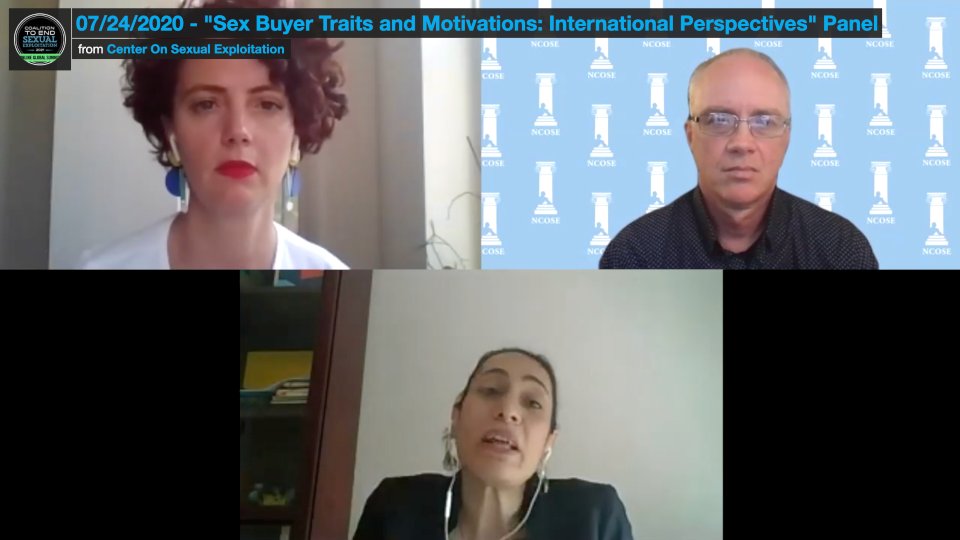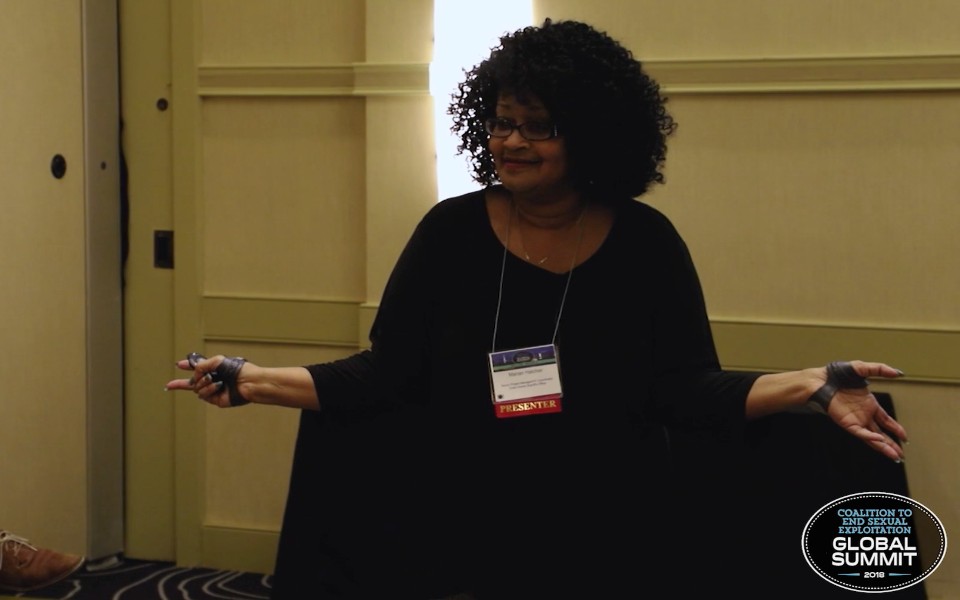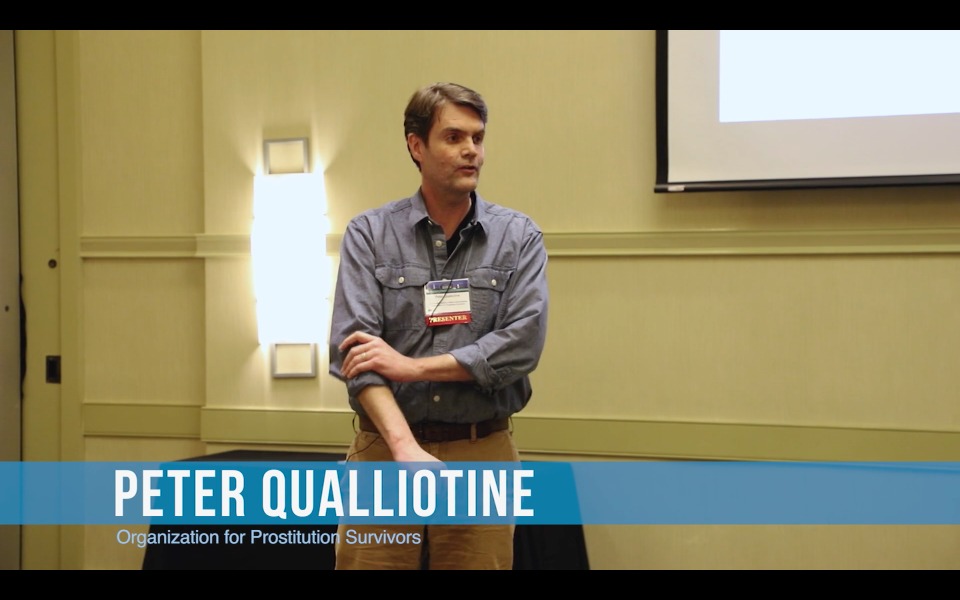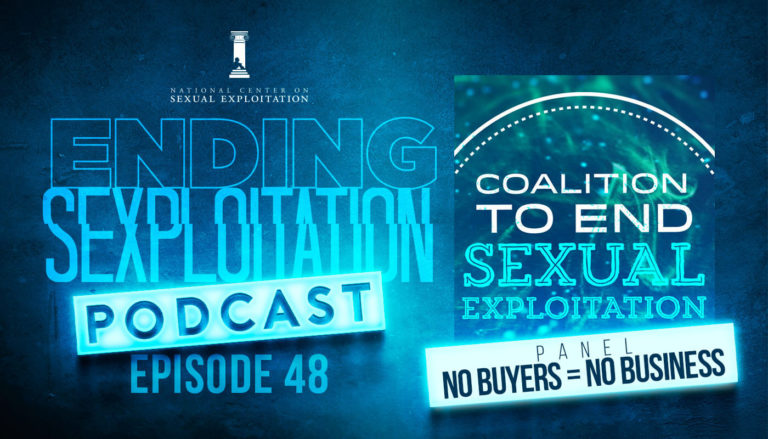
A key factor in preventing sex trafficking and other forms of sexual exploitation is often neglected or forgotten altogether—the consumer demand for paid sex (whether in person, virtual, or digital or film photography formats).
The Role of Supply and Demand in Markets
The concepts of supply and demand are fundamental building blocks in commercial economies. Supply represents any particular product the market offers, and demand refers to the desire for those products among potential buyers (see here).
Sexual Exploitation and Supply
When these concepts are applied to forms of sexual exploitation such as prostitution, pornography, or sex trafficking, the “supply” refers to those who are bought and sold for in-person sex or whose sexually explicit images are commodified and/or bartered. This objectifies and diminishes the humanity of those being supplied (predominantly women and children, but also people of any gender) by rendering human beings into public sexual commodities.
Sexual Exploitation and Demand
In contrast, those who make up the “demand” are the individuals with the desire and means to purchase people to use for sex (again, whether in person, virtual, or digital or film photography formats).
As the driving force fueling the markets for paid sex, these “buyers” represent the consumer-level demand. Without them making the decision to buy sex acts, sexual exploitation would end. No buyers, no business.
Those who comprise the demand are overwhelmingly male.
Sex Trafficking and Demand
Sex trafficking exists because the male demand for people to buy for sexual use outstrips the supply of those available for purchase. Since few people wish to be bought in exchanges of sex for money, sex traffickers (i.e., distributors of people used for prostitution, and motivated by profit) step in to “provide” the supply. In order to secure people to sell in the prostitution marketplace, pimps engage in recruitment, transportation, harboring, provisioning and obtaining, and utilize means of force, fraud, and coercion. Thus, pimps are by definition sex traffickers and any pimp-controlled person, whether a minor or an adult, is a victim of sex trafficking.
For more information, download our free resource, “How to Stop Sex Buying“

- Shift law enforcement’s finite resources from arresting and adjudicating prostituted persons toward arresting and adjudicating sex buyers
- Make available federal short-term funding programs to support state and local law enforcement agencies ready to make demand-reduction reforms
- Implement mandatory minimum fines on adjudicated sex buyers to help offset costs of survivor exit services, effective long-term sex buyer education programs, and law enforcement operations
- Create increasingly severe penalty structures for repeat buyers, while ensuring that sanctions are consistent with the nature of the offence and not unfairly punitive
- Counter messages that normalize sex buying through interventions in education and public health sectors
- Create and enforce employer policies prohibiting sex buying
- Implement targeted prevention campaigns and focus deterrence communications on behavioral “nudges” such as:
- Targeted deterrence and prevention campaigns that focus on how much “safer” it is for men to engage in consensual relational sex compared to buying sex
- Scalable communications programs, especially those deployed digitally, that focus on nudging men away from exploitive sexual experiences that are highly correlated with sex buying
- Contributions from the health sector which can help reduce demand on multiple fronts
- Involvement of physicians and mental health counselors to communicate sex buying is a risky activity
- Civil prosecutions against “sex tourists” and sex buyers
- Prosecution of buyers as conspirators to sex trafficking
- Prevent childhood exposure to pornography
- Develop and refine existing demand reduction strategies to target the most active and
privileged buyers
For more information, download our free resource, “How to Stop Sex Buying“
There are likely sex buyers in your community, and they tend to blend in with everyone else. Because buying sex is illegal in most of the country it is difficult to gather data on their identities, but there have been several useful studies that help shed light on this population.
According to one such study, “about 14% of men in the United States report having ever paid for sex.” A survey of sex buyers in Minnesota reported that sex buyers were found in a “wide variety of employment sectors, including businessmen, doctors, lawyers, dentists, judges, professors, police officers, correctional officers, pastors, executives, truck drivers, manual laborers, farmers, and sailors.” In this same survey, a law enforcement officer stated:
A good majority of them are going to be your middle-aged to older white males as a demographic on them. A little bit, I would say, higher up on the economic scale – they have a little extra money to spend. A good majority of them, I would say 80-90 percent are married with children.
Interviews with Chicago men who purchased sex revealed a more diverse ethnic range of sex buyers—40% African American, 36% European American, 14% Latino, 5% Asian/Pacific Islander, and 5% identified as “other.” This suggests that the behavior of sex buying is not limited by race. The majority of men interviewed had a college education and a girlfriend or wife. While females have been known to purchase sex, it appears that they are in the extreme minority, and so sex buying from persons in prostitution is a predominantly male behavior.
Men who solicit and buy people for sex are often referred as “customers” or “clients.” These terms normalize and obscure the harm of their behavior.
The term “johns” is also a common term used to refer to those who purchase sex. It too is problematic for its anonymizing effect, as well as the way in which it normalizes the behavior by suggesting that men purchasing people for sex is as common as the name “John.”
As an alternative we use the term “sex buyers” because it more accurately describes the activity in which these individuals engage.
However, it has been argued that “sex buyers” are not actually purchasing sex, since “sex” connotes an intimate, mutually desired, and mutually pleasurable sexual exchange. The “sex” purchased in prostitution is certainly not intimate (it is an escape from intimacy), nor is it mutually desired (if it was, payment would not be necessary), and it hinges entirely on the sexual pleasure of the buyer, thus making it inherently impossible to engage in a healthy, paid sex act. Moreover, terms like “sex buyer,” by placing emphasis on sexual activity, obscure the humanity of those on whom buyers enact and enforce their sexual demands.
Unfortunately, we are not aware of alternative phrasing that adequately encapsulates the behavior and resulting harms that the term “sex buyers” attempts to describe, so in spite of its shortcoming we use the term sex buyers.
When there is a buyer, there is an incentive for so-called “third-parties” or “entrepreneurs”—pimps and sex traffickers—to provide a “product” (i.e. real men, women, and children) through sex trafficking.
A 2013 study of 150 countries from the London School of Economics found that wherever prostitution was legal, sex-trafficking tended to increase, not decrease. Why? Because once something is legal, there is increased demand for it.
And because prostitution is inherently dangerous and harmful, there are not many women or men who enter into it “willingly.” This means that sex traffickers push victims into the sex trade through force, fraud, or coercion in order to make a profit off of the high demand for commercial sex.
Further, it is essentially impossible for sex buyers to vet and know if the person they are purchasing for sex is a sex trafficking victim or not. Most sex trafficking victims are not held in dungeons with literal chains but are instead imprisoned through psychological coercion and threats. They may actively seek to engage with a potential sex buyer in order to meet quotas imposed on them by their sex trafficker/s.
Purchasing sex is ultimately an act of sexual entitlement—just like so many other forms of sexual exploitation. Reams of studies recognize the pervasive violence found in prostitution, across prostitution types and locations—whether one is a male or a female, whether one is prostituting in America or a third world country, indoors or outdoors, for drugs or to pay the rent, on a street corner, in a car, back alley, brothel, massage parlor, or strip club—both the threat of, as well as actual violence, permeate everyday existence in prostitution.
Sex buyers are the primary perpetrators of violence against prostituted women. One survivor of prostitution explained how purchasing sex eradicates empathy and boundaries during the encounter, stating:
“You know when you buy something and it doesn’t work properly, the first thing you will do is pick it up and shake it. The same principle applies to prostitution. If your mouth isn’t open wide enough or your throat isn’t deep enough. So you are always at risk of being raped or abused if the buyer feels he is not getting what he paid for.”
Further, many sex buyers purchase sexual access to women primarily to act out on violent fantasies. One social service provider reflected on conversations with women in prostitution, noting: “There’s a lot of men [sex buyers] that will tell you right up front- you’ll get an extra hundred dollars, but I’m going to beat the shit out of you.”
There are at least 12 tactics that have been used in several U.S. cities and counties to deter people from buying sex. These demand-reduction tactics include both street-level and web-based reverse stings that arrest sex buyers instead of prostituted people, “John schools,” “Dear John” letters, shaming, and vehicle seizures. To learn more about tactics to address demand, visit https://demand-forum.org/.
Take Action
Pass State Legislation
Share Your Story
NCOSE's Efforts to Combat Sex Buying
As is the case with all NCOSE does, we work in partnership and collaboration with survivors, other non-profits, other experts, government, business, and many others.
With the help of many partners, we are generating political will to enforce existing laws targeting buyers by bridging the gap between policy & practice.
NCOSE’s policy team is working to enact stronger legislation at all levels of government focused on strengthening sex buyer accountability. Where laws are strong, we are working to ensure communities and law enforcement have the resources and training to enforce the laws. A key element of the improved laws we advocate for is that sex buyers must be used to pay for harm they have caused. Income-based and escalating fines (as well as jail time ideally) will be used to help pay for services for those abused in the sex trade.
NCOSE is also working to stop bad laws which would legalize sex buying, pimping, and brothel keeping from passing. There is a deliberate effort by the pro-sexual exploitation industry to pass such legislation in local communities and at the state level. To date, NCOSE and its allies have successfully stopped all such efforts from passing, despite the incredible amount of money poured in from exploiters and their apologists.
NCOSE has an outstanding record of moving companies to change policies (Google, Comcast, Hilton Hotels, Instagram, and more). Our corporate advocacy team is focused on moving corporations and institutions to adopt policies prohibiting sex buying behavior. For example, employees should be terminated if caught purchasing sex.
NCOSE’s Research Institute will continue to identify initiatives from US and abroad aimed at deterring people who buy sex and will conduct, synthesize, and share research, data, and anecdotal evidence to power the movement.


4% of U.S. Men Purchased Sex in Last Three Years
Pornography users were 3x more likely to purchase sex
68% of Prostitution-Related Arrestees Were Female
2.6% of Danes, 1.7% of Norwegians, and 0.5% of Swedes
Further Reading
Research: Estimating the Sex Buying Behavior of Adult Males in the U.S.
Research: Are Men Who Buy Sex Different from Men Who Do Not?
Research: American Adult Pornography Consumer’s Beliefs and Behaviors Related to Pornography Studios Mistreating Their Performers
Demand for Prostitution
Best Practices to Address the Demand Side of Sex Trafficking
Combating Demand is Crucial for Protecting Victims of Prostitution
Research: Estimating the Sex Buying Behavior of Adult Males in the U.S.
Research: Are Men Who Buy Sex Different from Men Who Do Not?
Research: American Adult Pornography Consumer’s Beliefs and Behaviors Related to Pornography Studios Mistreating Their Performers
Demand for Prostitution
Best Practices to Address the Demand Side of Sex Trafficking
Combating Demand is Crucial for Protecting Victims of Prostitution
Research: Estimating the Sex Buying Behavior of Adult Males in the U.S.
Research: Are Men Who Buy Sex Different from Men Who Do Not?
Research: American Adult Pornography Consumer’s Beliefs and Behaviors Related to Pornography Studios Mistreating Their Performers
Demand for Prostitution
Research: Are Men Who Buy Sex Different from Men Who Do Not?
Research: Estimating the Sex Buying Behavior of Adult Males in the U.S.
Best Practices to Address the Demand Side of Sex Trafficking
Combating Demand is Crucial for Protecting Victims of Prostitution
Research: American Adult Pornography Consumer’s Beliefs and Behaviors Related to Pornography Studios Mistreating Their Performers
Demand for Prostitution
Research: Are Men Who Buy Sex Different from Men Who Do Not?
Research: Estimating the Sex Buying Behavior of Adult Males in the U.S.
Best Practices to Address the Demand Side of Sex Trafficking
Combating Demand is Crucial for Protecting Victims of Prostitution
Research: American Adult Pornography Consumer’s Beliefs and Behaviors Related to Pornography Studios Mistreating Their Performers
Demand for Prostitution
Research: Are Men Who Buy Sex Different from Men Who Do Not?
Research: Estimating the Sex Buying Behavior of Adult Males in the U.S.
Best Practices to Address the Demand Side of Sex Trafficking
Research
A National Overview of Prostitution and Sex Trafficking Demand Reduction Efforts
Video Resources
Playlist
Subscribe to our YouTube channel for the latest webinars, presentations from experts, video podcasts, and more!
Audio Resources
Subscribe to the Ending Sexploitation Podcast today!
The Ending Sexploitation podcast decodes sexual harms and provides you with active solutions. We address the full spectrum of sexual exploitation, from sex trafficking to sexual violence, to rape culture, to pornography, and more. And better yet, we give you the tools to make a difference!
Featured Episodes Pertaining to Sex Buying & Demand:
One of the first places we encourage you to go is to the website NotLove.org which is operated by an organization called Street Grace. This website provides educational tools to help with understanding compulsions that lead to buying sex, features testimonials from those who have been down these dark roads and how they found healing, and it also points to local resources to help sex buyers begin to move forward towards healing.
Chicago Alliance Against Sexual Exploitation (CEASE) has a program called “Empowering Young Men to End Sexual Exploitation” for young men between the ages of 14 and 18. This program is designed to reduce and eliminate sexual violence, exploitation, and trafficking. During the five 45-minute sessions, participants will have a safe environment in which to discuss healthy relationships, violence prevention, and both social and personal responsibility. By the program’s conclusion, students will be able to explain sexual exploitation as a form of violence against women, discuss social perceptions of masculinity as created by peers and the media, and act as allies against sexual exploitation and trafficking by identifying practical ways to end sexual harm.
Sawyer Solutions is directed by Steve Sawyer who founded one of the very first “john school” types of interventions in the United States in Minneapolis/St. Paul MN back in 1988. He provides a therapeutic, counseling approach for problematic sexual behavior rather than an education program or class.
Support groups modeled after the 12-step program framework of Alcoholics Anonymous will offer some help to overcoming compulsive sexual behavior, though we have not found that they specifically address sex buying directly: Sex Addicts Anonymous, Sex and Love Addicts Anonymous, and Sexual Compulsives Anonymous.
Veronica’s Voice in Kansas City (with some possible virtual options) offers a restorative-justice-diversion approach. It is designed to help men understand their behavior and promote their accountability in choosing to not buy sex.
LifeStar Network is divided into three levels of intensive group therapy lead by highly trained and licensed therapists. LifeStar strongly suggests that participants also participate in individual and/or couples therapy as well as in a 12-step Sex Addicts Anonymous program (see above recommendations) outside of the LifeStar program.
ATSA (Association for Treatment of Sexual Abusers) provides treatment for people who are at risk to sexually offend as well as those who have already sexually offended. Juvenile program includes work with children who display sexual behavior problems and adolescents who have engaged in sexually abusive behavior, or other sexual behavior problems.
International Institute for Trauma and Addiction Professionals (IITAP) is a database that can help you find local sex addiction therapists, support groups, 12-step programs, and sex addiction treatment options. They also provide educational materials to understand sex addiction.

